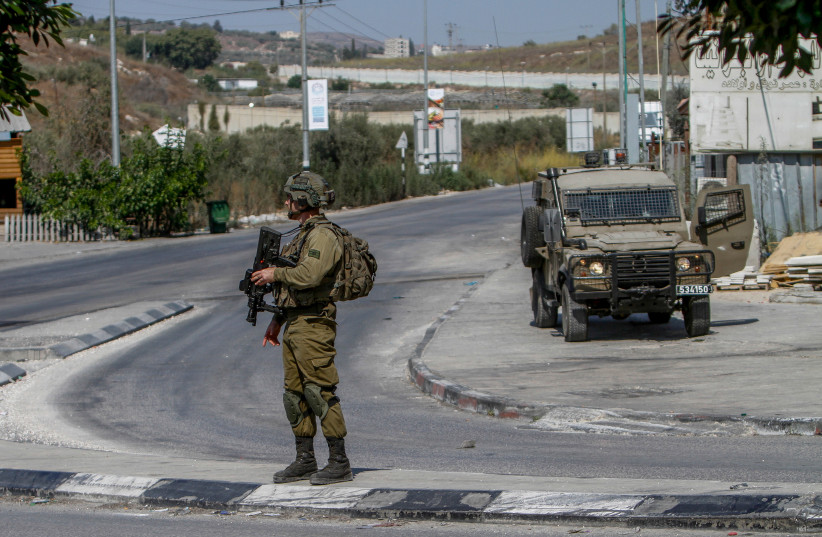The Labor Party called for a building freeze in isolated West Bank settlements and for the removal of unauthorized outposts, in a diplomatic platform it published on Sunday night, with one week left before voters head to the polls.
“Construction will be stopped in the settlements east of the [boundary of the] security barrier and outside the settlement blocs,” the platform stated. The illegal outposts throughout Judea and Samaria will be removed and an “evacuation-compensation plan will be implemented for residents of settlements outside the blocs.”
The party reaffirmed its support for a two-state resolution to the conflict and for the retention of the settlement blocs within Israel’s final borders.
“Construction will be stopped in the settlements east of the [boundary of the] security barrier and outside the settlement blocs.”
Labor Party's position
“The State of Israel will renew the political negotiations with the Palestinian Authority based on the principles of two nation-states living in peace, side by side... [and] a demilitarized Palestinian state,” the party stated.
It explained that this would include “the exchange of territories, the retention of settlement blocs under Israeli sovereignty, and maintaining the Jordan [Valley] as the eastern security border of the State of Israel.”


The left-wing party, which under prime minister Yitzhak Rabin initiated the Oslo Accords in the 1990s, has since then historically supported a two-state resolution to the conflict. This has included the retention of the settlement blocs within the country’s final borders.
Prime Minister Yair Lapid’s Center-Left Yesh Atid Party also supports the inclusion of the settlement blocs within Israel’s final borders. But while Labor did not speak of whether it supported a united or divided Jerusalem, Yesh Atid has clarified that a “united Jerusalem will be Israel’s capital.”
The Yesh Atid platform also pledges not to unilaterally cede any territory, so as not to repeat Israel’s “mistake” of unilaterally withdrawing from the Gaza Strip in 2005.
The left-wing Meretz Party, in contrast, supports a two-state resolution to the conflict based on the pre-1967 lines with mutually agreed land swaps and Jerusalem as the shared capital of Israeli and Palestinian states.
Its platform states that settlement construction is a stumbling block to peace with the Palestinians. In a final-status agreement, the Meretz platform stated, most of the settlements would be evacuated, save for those settlements annexed to Israel as part of a land-swap deal.
On Saturday, Labor leader Merav Michaeli angered the settler leadership when she said there was no point in investing in West Bank transportation for Israelis, given that the area won’t be part of the Jewish state in the future.
She spoke during an exchange with an audience at Channel 12, in which she was asked why she had frozen transportation projects for settlers in Judea and Samaria.
Michaeli said she had not frozen any projects but had not started new ones.
“It’s a shame to invest in a place that at the end of the day, won’t be part of Israel,” she said.
Criticism of Michaeli's policies
Shlomo Ne’eman, who heads both the Yesha Council and the Gush Etzion Regional Council, took exception to her words.
Michaeli “is promoting an extreme and dangerous agenda” in which it’s acceptable to have transportation on the Sabbath but pointless to provide for residents of Judea and Samaria, he said.
Ne’eman accused Michaeli of halting work on vital arteries in the region including the tunnel road leading to Gush Etzion, which he said serves both Israelis and Palestinians.
He said he hoped voters would elect a right-wing government that would replace the one to which she belongs.
“On November 1, a government will be elected that believes in our right to this land and nothing less than the fact that, unlike you, it will take care of the citizens of Israel in every corner of the country,” Ne’eman said.
Michaeli’s spokesman clarified that her statement spoke to the difficulty of investing in a region prior to knowing what territory would be part of sovereign Israel, and did not indicate her policy on what those future borders might be.
